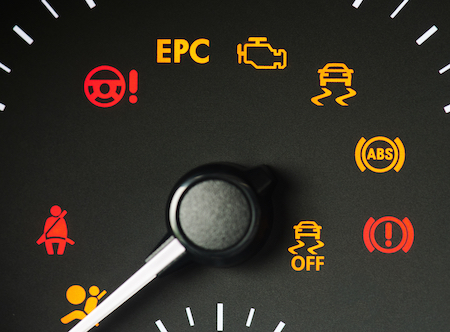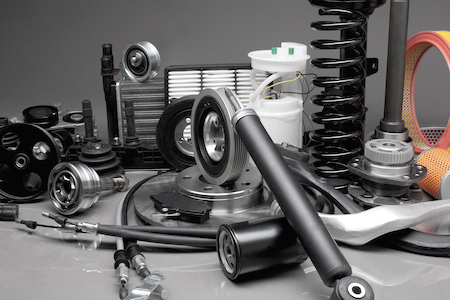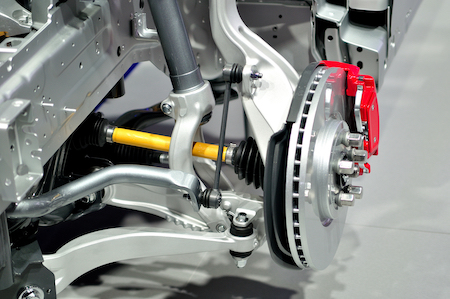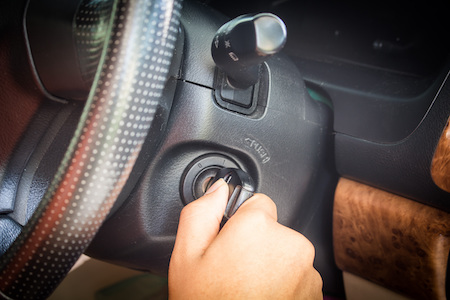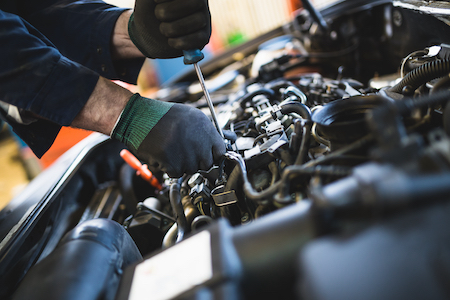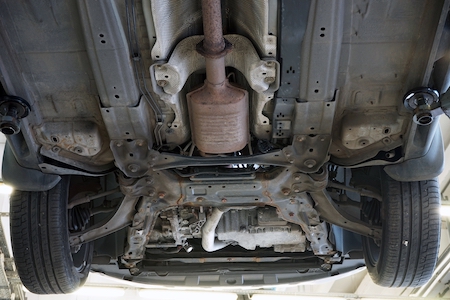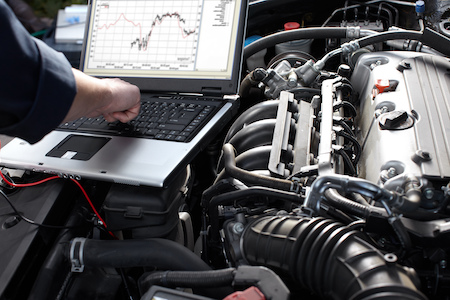Every time you jump behind the wheel, you expect a problem-free ride.
That’s not always the case.
Ever been flying down the road only to notice a symbol on your car’s dashboard? A little more investigation reveals trouble codes alerting you to a problem.
Is it serious?
What are your next steps?
What’s going on?
Why cars have dashboard lights
Dashboard lights are integral to modern vehicles, serving as an early warning system for potential issues. They provide drivers with real-time information about their car’s performance, alerting them to any problems that may arise. These lights are designed to keep you informed and maintain your vehicle’s optimal functionality, ensuring a safe and comfortable driving experience.
What dashboard symbol colors mean
What color is flashing at you? Dashboard symbols are typically color-coded to convey different levels of urgency. Here’s what they mean:
Red symbols – Red indicates a critical issue that requires immediate attention. These symbols often represent severe problems such as engine failure, low oil pressure, or brake system malfunctions. When you see a red symbol, it is crucial to pull over safely and seek professional assistance.
Yellow or amber symbols – Yellow or amber symbols signify a potential problem that may require attention. While not as urgent as red symbols, it is still advisable to have the issue diagnosed and repaired as soon as possible to prevent further damage or complications.
Blue or green symbols – Blue or green symbols indicate a specific function or system is in use. These symbols are generally informational rather than warning signs and don’t require immediate action.
What are diagnostic trouble codes and how do you find them?
Modern cars are equipped with onboard diagnostic systems that monitor various aspects of the vehicle’s performance. When an issue is detected, the system generates a diagnostic trouble code (DTC) to identify the specific problem. You will need an OBD-II scanner to access these codes, which can be plugged into the vehicle’s diagnostic port. Once connected, the scanner will retrieve the DTCs, allowing you to pinpoint the underlying issue accurately. It’s essential to consult a professional mechanic or refer to the vehicle’s manual to interpret the codes correctly.
The most popular dashboard symbols and what they mean
Let’s explore some of the most commonly encountered dashboard symbols and their meanings:
Airbag warning light
The airbag warning light indicates a potential issue with the airbag system. It could mean the airbags are deactivated, malfunctioning, or have a faulty sensor. Driving with a malfunctioning airbag system can put you at risk, so it’s crucial to have it checked by a qualified technician.
Air suspension warning light
This symbol indicates a problem with the vehicle’s air suspension system. It could be due to a leak, a faulty compressor, or a sensor issue. A malfunctioning air suspension system may affect the vehicle’s stability and ride comfort, so it should be inspected by a professional.
Anti-lock brake system warning light
When the anti-lock brake system (ABS) warning light illuminates, it suggests an issue with the ABS. This system prevents the wheels from locking up during braking, enhancing control and stability. If the ABS warning light stays on, it may indicate a faulty sensor, hydraulic pump, or other ABS components.
Automatic shift lock
The automatic shift lock symbol appears when there is a problem with the vehicle’s automatic transmission system. It could indicate an issue with the shift lock solenoid or a problem with the transmission itself.
Battery alert light
The battery alert light indicates an issue with the vehicle’s charging system. It could be due to a faulty alternator, a loose or damaged belt, or a dying battery. Ignoring this warning may lead to a dead battery and potential breakdown.
Brake warning light
The brake warning light typically indicates a problem with the brake system. It may signify low brake fluid levels, worn brake pads, or a malfunctioning braking system. Inspecting your brakes immediately is crucial to ensure safe braking performance.
Engine temperature warning light
This symbol warns about the engine’s overheating, often due to coolant system problems. Driving with an overheated engine can cause severe damage, so stopping the vehicle, allowing it to cool, and seeking professional assistance is essential.
Engine warning light
The engine warning light, often shaped like an engine block, indicates a potential issue with the engine or its related systems. It could be triggered by various factors, such as a malfunctioning sensor, a loose gas cap, or a more serious engine problem.
Fuel indicator light
The fuel indicator light alerts you when the fuel level is low. Refueling at your earliest convenience is essential to avoid being stranded.
Lane departure warning light
This symbol indicates a problem with the vehicle’s lane departure warning system. It’s designed to alert you when the vehicle deviates from its lane without signaling. If this light illuminates, have the system inspected to ensure its proper functioning.
Oil pressure warning light
The oil pressure warning light indicates low oil pressure, which can lead to engine damage if not addressed promptly. Stop the vehicle as soon as it’s safe and check the oil level. If it’s adequate, have the vehicle inspected to determine the cause of the low oil pressure.
Security indicator light
The security indicator light, often shaped like a lock or key, indicates a vehicle security system problem. It may suggest an issue with the immobilizer or the key itself. If this light remains illuminated or flashes, consult your vehicle’s manual for guidance.
Tire pressure warning light
The tire pressure warning light alerts you when one or more tires have low pressure. Underinflated tires can affect handling, fuel efficiency, and tire wear. Check the tire pressures and inflate them to the recommended levels promptly.
Traction control alert light
The traction control alert light indicates a problem with the vehicle’s traction control system. It’s designed to improve stability and prevent wheel slippage. If this light stays on, it may indicate a malfunction in the system that requires professional attention.
Transmission temperature warning light
This symbol indicates that the transmission fluid temperature has exceeded safe operating limits. Driving with an overheated transmission can lead to costly repairs. Safely pull over, allow the transmission to cool, and consult a professional to diagnose the underlying cause.
Washer fluid indicator light
The washer fluid indicator light reminds you to refill the windshield washer fluid reservoir. Maintaining an adequate washer fluid level ensures clear visibility and safe driving.
Are the codes and symbols on your car’s dashboard working well?
By familiarizing yourself with these symbols, their meanings, and the appropriate actions to take, you can address potential issues promptly and avoid more significant problems down the road. When you have a question, consult your vehicle’s manual or seek professional assistance to ensure accurate diagnosis and resolution of any dashboard-related concerns.
Stay informed, stay safe, and enjoy your time on the road!

